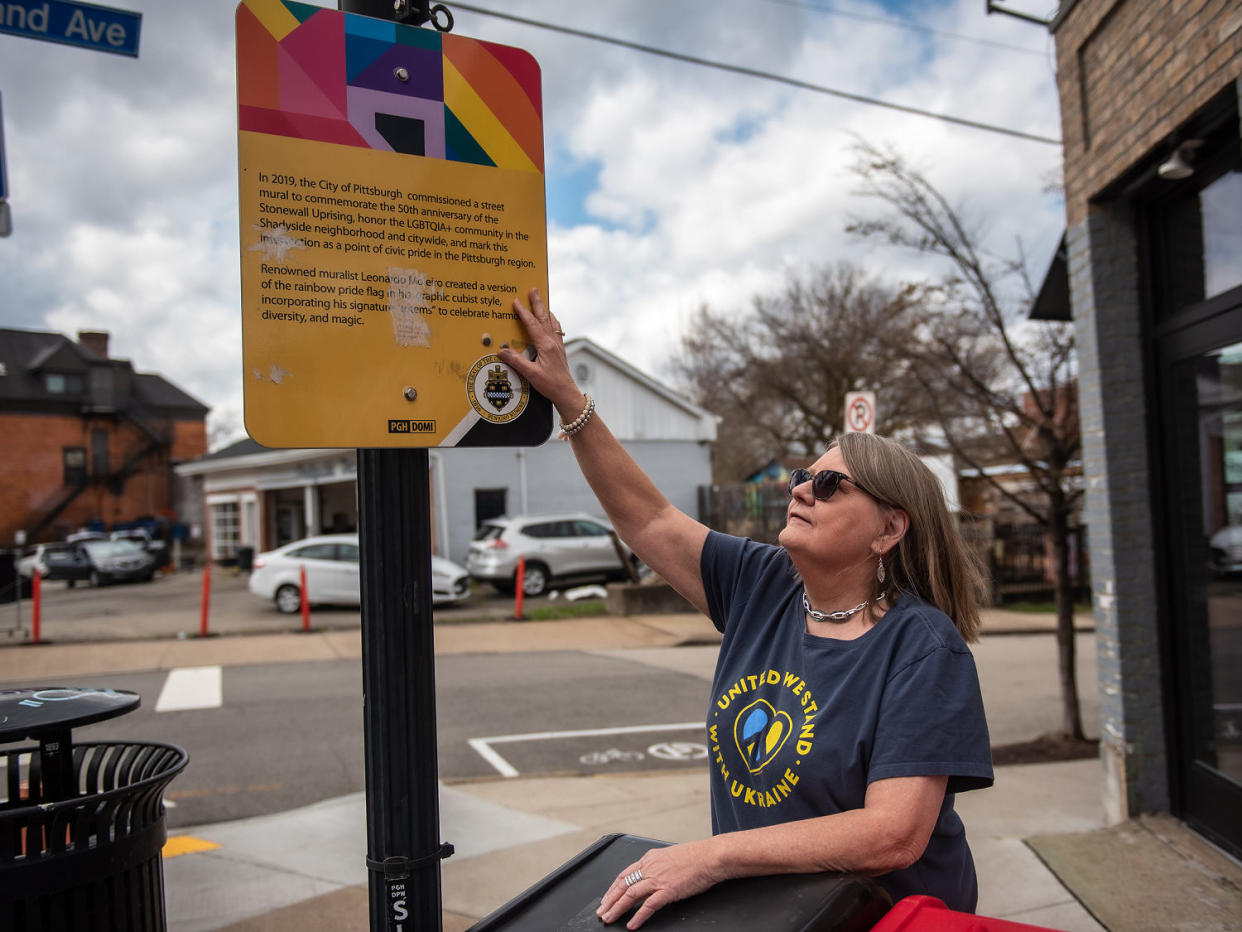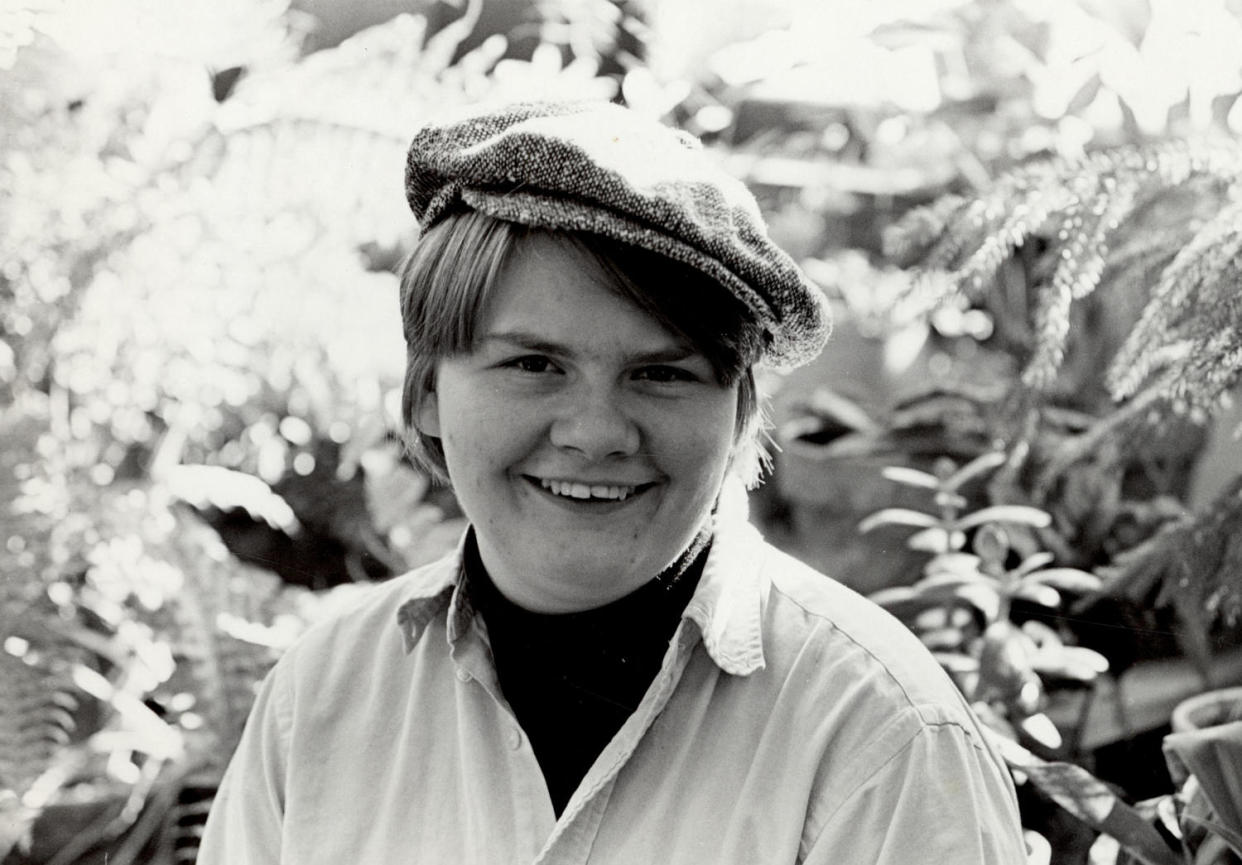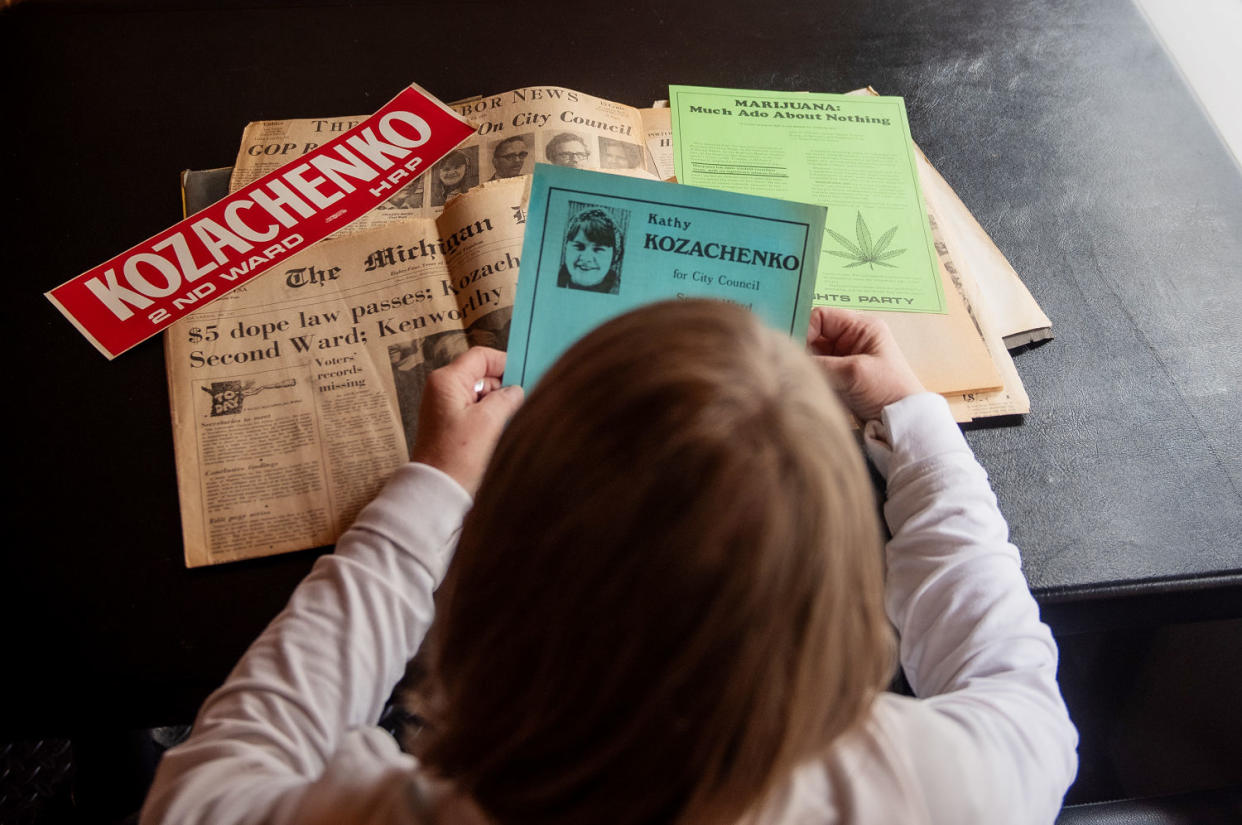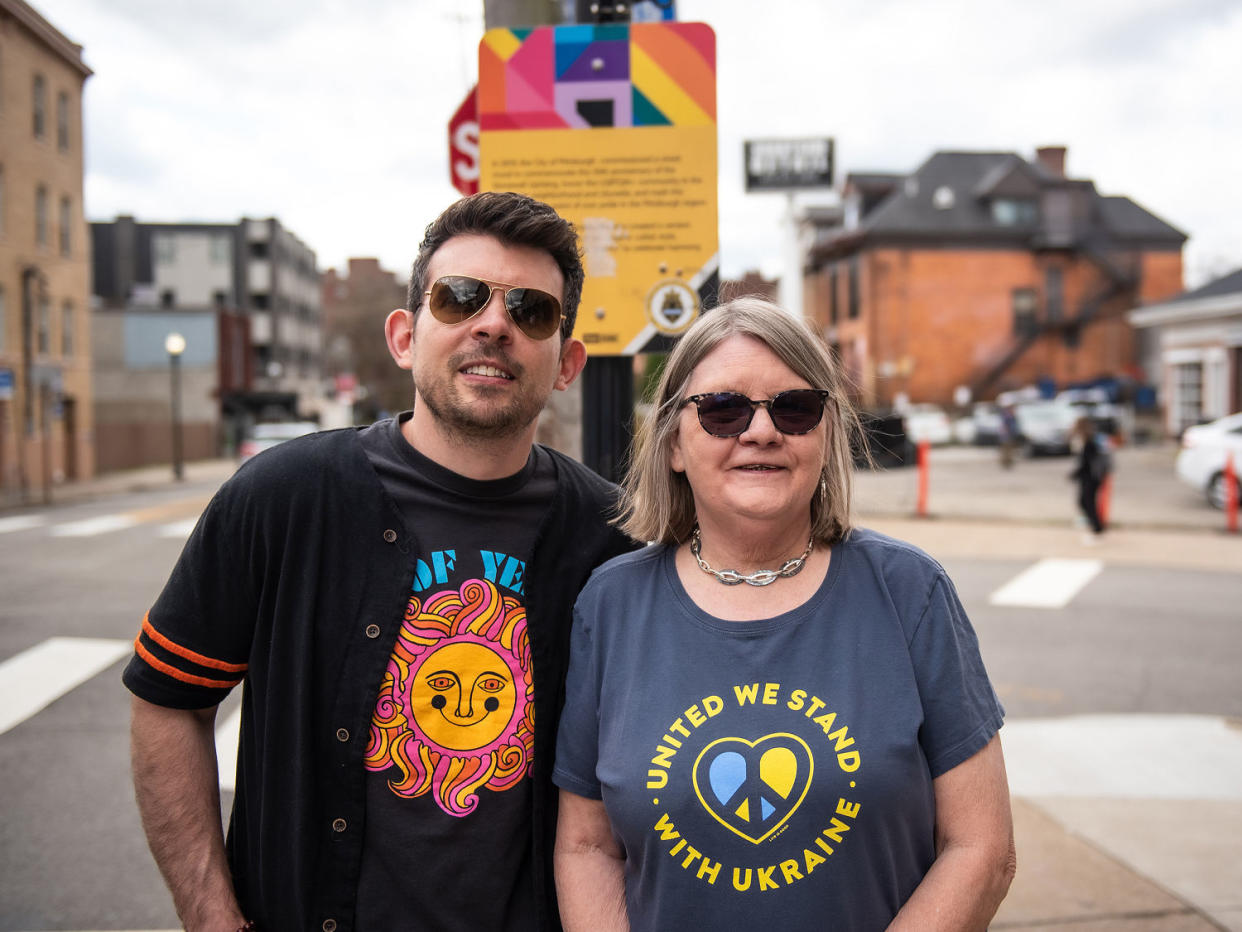America's 1st openly gay elected official is concerned about today's attacks on LGBTQ people
It’s been 50 years since a 21-year-old University of Michigan college student became the first openly gay person elected to public office in the U.S. Kathy Kozachenko, now 71, served only a single term on the Ann Arbor City Council, but she opened a door to LGBTQ representation in politics when the community was rapidly gaining visibility in American society.
Even though she shattered a long-impenetrable lavender ceiling, Kozachenko is not a household name, unlike her contemporary Harvey Milk, who was elected to public office in California three years after her victory. But she has spent her decades out of elected office closely following politics, including the current rise in anti-LGBTQ state policies and rhetoric, which she called “more dangerous” than some of the challenges her generation overcame.

“It’s tragic that gains that we made 50 years ago we’re now seeing either under attack or being erased,” Kozachenko said from her home in Pittsburgh, where she has lived for over 45 years. “We have to do the work again.”
She cited book bans, restrictions on abortion and the targeting of transgender people as particular causes of concern.
Kozachenko was elected in April 1974 at another particularly polarizing time for the nation: The Vietnam War was not yet over, the Supreme Court had just handed down its landmark 1973 Roe v. Wade abortion decision, and the aftershocks of the 1969 Stonewall uprising were still being felt. They were among the turning points that contributed to a politically charged atmosphere for college-age students at the time, especially those who identified as gay and lesbian.
“That was kind of the tail end of a period that historians call the ‘gay liberation’ period of politics,’” said Tim Retzloff, an adjunct professor of history and LGBTQ studies at Michigan State University. “Before that, [activism] had been confined to kind of the largest cities, and what happened with gay liberation is it really kind of found its way all across the country.”

Retzloff said the University of Michigan emerged as an important hub for Midwestern activism that included other significant milestones for the LGBTQ community. In 1972, Ann Arbor enacted an ordinance protecting gays and lesbians from discrimination and became the first city in the country to designate an official Pride Week celebration.
“It was hugely exciting,” Kozachenko said of the political energy on her college campus. “We really felt like we were going to change the world.”
By the time she was approached to run for office by the local Human Rights Party, two other Ann Arbor City Council members had already made LGBTQ history in their own right. In 1972, Jerry DeGrieck and Nancy Wechsler became the first U.S. elected officials to come out while in office. Kozachenko, who remains friends with DeGrieck and Wechsler, said their decisions to come out helped her feel that she was in a “supportive environment.”
“Ann Arbor in the ’70s was very different from a lot of other cities. It was a college town, and it was very progressive, so this was not something that would have been seen as a negative,” Kozachenko said of running for office as an out lesbian.
Even the pushback she encountered campaigning was relatively mild, Kozachenko said. She recalled knocking on the door of a man who told her he was a born-again Christian but would vote for Kozachenko anyway because “God works in mysterious ways.”
“I was touched that he had an open mind and was voting for the person and not being straitjacketed by things he might have been taught in his religion,” Kozachenko said. “Now … we’re in a very scary time in our country where people’s religious views are pushing back some of the progress, some of the rights that we won when I was in college 50 years ago.”

Kozachenko ultimately chose not to seek a second two-year term because she stopped viewing the City Council as “an effective means” to make change in the causes she cared about.
“My goal was never to be a ‘politician.’ It was to work for social and economic justice,” she said.
After Kozachenko’s historic feat, other openly gay lawmakers soon followed. In November 1974, seven months later, Elaine Noble won a seat in the Massachusetts House of Representatives, becoming the first openly gay person elected to a state legislature. Three years later, in 1977, Milk won a seat on the San Francisco Board of Supervisors, a position he held for just 10 months before he was assassinated, along with the city’s mayor, by a former colleague.
“In 1974, we had one out LGBTQ+ elected official. Today we have 1,275. She was the spark that has changed the face of politics in the U.S. and around the globe,” said Elliot Imse, executive director of the LGBTQ+ Victory Institute.
'An important piece of American history'
The city of Ann Arbor is celebrating its role in LGBTQ history by raising money for a statue of Kozachenko to be erected outside City Hall.
Mayor Christopher Taylor said the city’s bicentennial, which coincides with the 50th anniversary of Kozachenko’s election, seemed like an opportune time to recognize her and “this important component of LGBTQ history.”
“This is very much an effort that is supported by the local community, and we as a municipal organization and larger community are just so excited and proud that this important piece of American history was made right here in Ann Arbor,” Taylor told NBC News.

As for Kozachenko, she’s keeping the celebration small. She plans to gather with close friends to mark the anniversary, but she said the real commemoration will come in the form of political activism, by volunteering to help register voters for the November election and advocating for candidates who would protect LGBTQ rights, support Ukraine in its war against Russia and safeguard abortion access, among other progressive policies.
“I’ve come to realize that part of the significance of my election and my place in LGBTQ history is the fact that I advocate for the importance of movements working together and the importance of seeing that the fight for justice is a common fight,” she said.
For more from NBC Out, sign up for our weekly newsletter.
